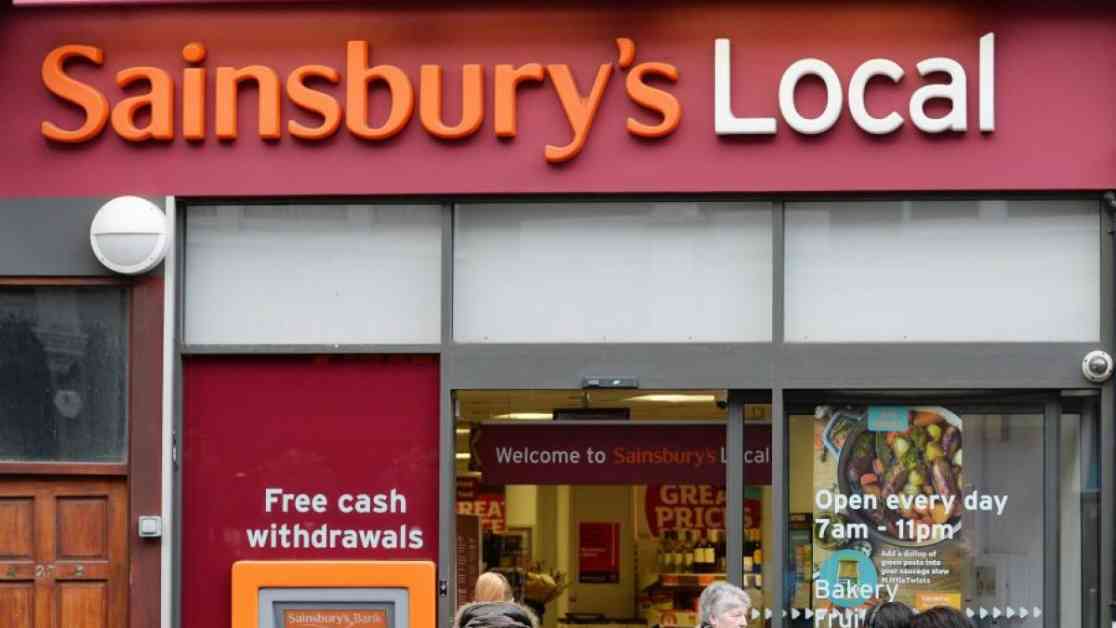Shoppers Advised to Avoid Buying Milk from Smaller Stores Due to Price Discrepancy
Consumers who frequent convenience stores for their grocery needs may want to think twice before purchasing certain items, as a recent study conducted by comparison site Which? has uncovered significant price differences between smaller branches of supermarkets and their larger counterparts. The research focused on Morrisons Daily, Sainsbury’s Local, and Tesco Express, comparing the cost of 42 common grocery items on multiple occasions in June and July, as well as analyzing loyalty scheme discounts.
According to the study, shoppers at Morrisons Daily were found to pay an average of 21% more for the same groceries compared to a full-size Morrisons supermarket. Some items were even marked up as high as double the price. This disparity in pricing highlights the potential savings that consumers could enjoy by opting to shop at larger supermarkets rather than convenience stores.
Price Discrepancy in Milk Costs
One notable finding from the study was the difference in milk prices between smaller supermarket stores and their larger counterparts. Morrisons Daily, Sainsbury’s Local, and Tesco Express all charged 8% more for two pints of own-label semi-skimmed milk compared to their full-size stores. This price variation remained consistent whether or not customers had a loyalty card, indicating a consistent markup across convenience store chains.
It’s essential for consumers to be aware of these price differences, as they can have a significant impact on their overall grocery expenses. By making informed decisions about where to shop for everyday items like milk, shoppers can potentially save a substantial amount of money over time.
Other Items with Marked-Up Prices
In addition to milk, the study also identified several other grocery items that were significantly more expensive at convenience stores compared to larger supermarkets. For example, at Morrisons, a 400g tin of own-label chickpeas was priced at 104% more at the convenience store than at the supermarket. Similarly, a 165g tub of Philadelphia soft cheese cost 63% more at Morrisons Daily, highlighting the substantial price variations that consumers may encounter when shopping at convenience stores.
Sainsbury’s and Tesco also exhibited price discrepancies between their convenience stores and larger branches, albeit to a lesser extent than Morrisons. Sainsbury’s Nectar members were found to pay an average of 14% more at Sainsbury’s Local, while Clubcard holders at Tesco Express faced an 11% markup on certain items. These findings underscore the importance of being mindful of where one shops to ensure optimal savings on grocery purchases.
Impact on Consumer Spending
The study’s findings have significant implications for consumer spending, particularly for those who rely on convenience stores for their grocery needs. According to Which? retail editor Ele Clark, many individuals lack easy access to transportation or online deliveries, making smaller nearby stores their primary option for shopping. While convenience stores offer a convenient solution for stocking up on essentials, the study reveals that regular shoppers may end up spending significantly more over time compared to those who have access to larger supermarkets.
To put this into perspective, the total cost of a basket of groceries at Morrisons Daily averaged £16 more than at a full-size Morrisons supermarket. Over the course of a year, this could potentially amount to an additional £832 in expenses for consumers who frequent convenience stores. Similarly, Sainsbury’s Local and Tesco Express shoppers could face an average increase of £11 and £10, respectively, for loyalty scheme members compared to prices at larger stores, resulting in over £500 in additional expenses annually.
Efforts to Address Price Discrepancies
In response to the study’s findings, major supermarket chains have committed to offering a broader range of budget and lower-priced options in their convenience stores. Sainsbury’s, Morrisons, and Tesco have acknowledged the need to cater to consumers who rely on convenience stores for their shopping needs and are working towards expanding affordable product choices in these locations.
For example, Morrisons introduced its budget ‘Savers’ range into Morrisons Daily stores nationwide to provide cost-effective options for customers. Additionally, the supermarket chain is actively exploring the possibility of accepting the More Card in its convenience stores in the coming months to offer additional discounts to consumers.
The UK’s Cheapest Supermarket
While price discrepancies between convenience stores and supermarkets are a prevalent issue, it’s essential for consumers to be aware of where they can find the best deals on their grocery purchases. According to recent analysis by Which?, Aldi has consistently been ranked as the UK’s cheapest supermarket as of August 2024. The supermarket chain offers competitive prices on a wide range of products, making it a popular choice for budget-conscious shoppers.
In contrast, Waitrose was identified as the most expensive supermarket surveyed, charging 27.4% more than Aldi for the same benchmark shopping list of 62 popular groceries. By being mindful of where they shop and taking advantage of loyalty programs and discounts, consumers can make informed decisions to maximize their savings on grocery expenses.













